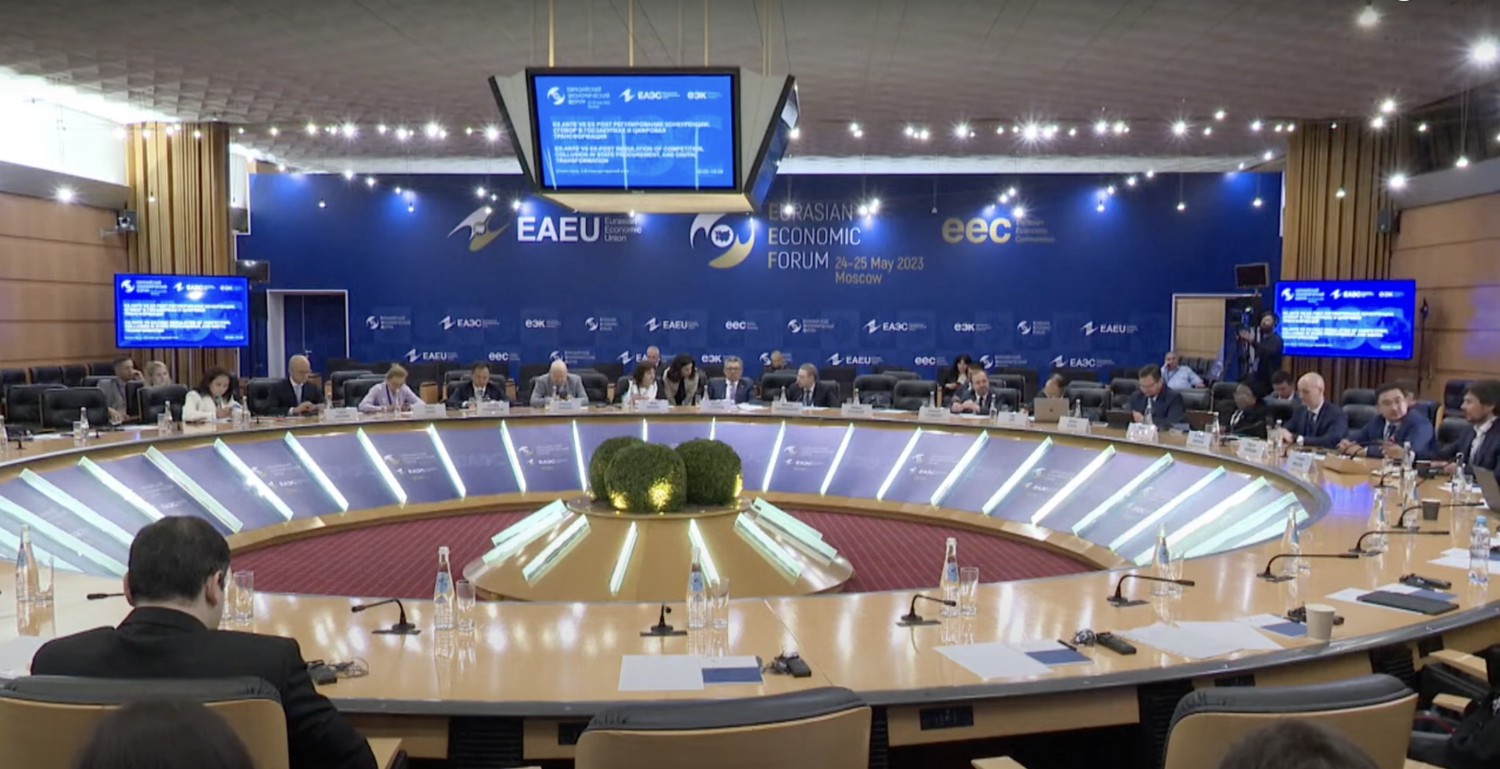The digitalization of the economy poses new challenges for competition regulators around the world. The main discussion in the community revolved around two approaches to regulating digital platforms — their advantages and disadvantages were discussed by experts during the session entitled "Ex-Ante vs Ex-Post Regulation of Competition, Collusion in State Procurement, and Digital Transformation", which was held as part of theII Eurasian Economic Forum in Moscow.
The antitrust community has two polar points of view on the regulation of digital markets, said Alexey Ivanov, Director of the International BRICS Competition Law and Policy Centre, opening the session. Some are inclined to an ex-ante approach, when clear rules are established and their implementation is strictly controlled. Others favor ex-post regulation, when regulation is carried out after a violation has already been committed. This is a classic market approach, which implies that it is necessary to let the market and economic entities develop, prioritize and bear responsibility if something goes wrong, Ivanov emphasized.
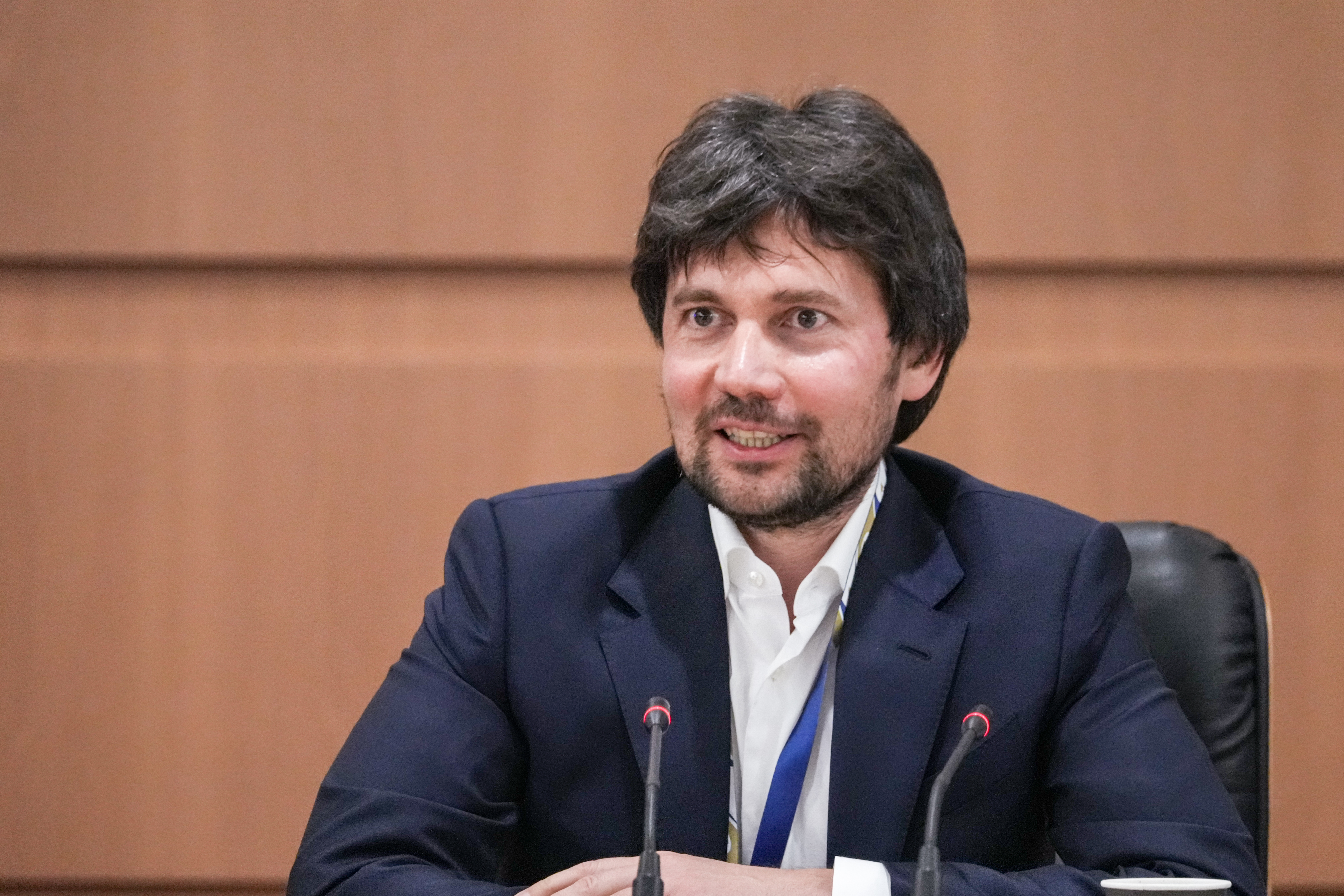
"Between these two poles is a space for compromise and experimentation, with different players trying to come up with different formats - DMA (Digital Markets Act ) and DSA (Digital Services Act ) in Europe, different guidelines in China and so on. Let's talk about it today,"
suggested the Director of the BRICS Centre.

Bakhyt Sultanov, Appointed Member of EEC Board in charge of Competition and Antitrust Regulation, noted that the ex-ante approach and unlimited powers of the state in regulating the economy, including the digital economy, can have a negative impact on fast-growing markets. However, the ex-post method has its disadvantages as well.
"We should try not to do any harm and look for the most effective option for the economy. Today it is not a task to choose one model. We see that both in large economies and on the platforms of the judiciary, one or the other approach wins."
Both ex-ante and ex-post regulation should be aimed at eliminating market access barriers, increasing the degree of freedom of transition and switching for consumers and non-discriminatory access to key capacities of digital ecosystems, emphasized Maxim Shaskolsky, Head of the Federal Antimonopoly Service (FAS) of the Russian Federation. He detailed the challenges FAS faces in connection with digitalization in the public procurement sector (application of price algorithms and auction robots by companies) and said that in June 2023, FAS will present Model Principles and Standards for interaction between participants of digital markets of CIS countries.
"Similar work on the development of a model document describing the principles of interaction between participants in digital markets is also underway in the BRICS format,"
said the head of the FAS.
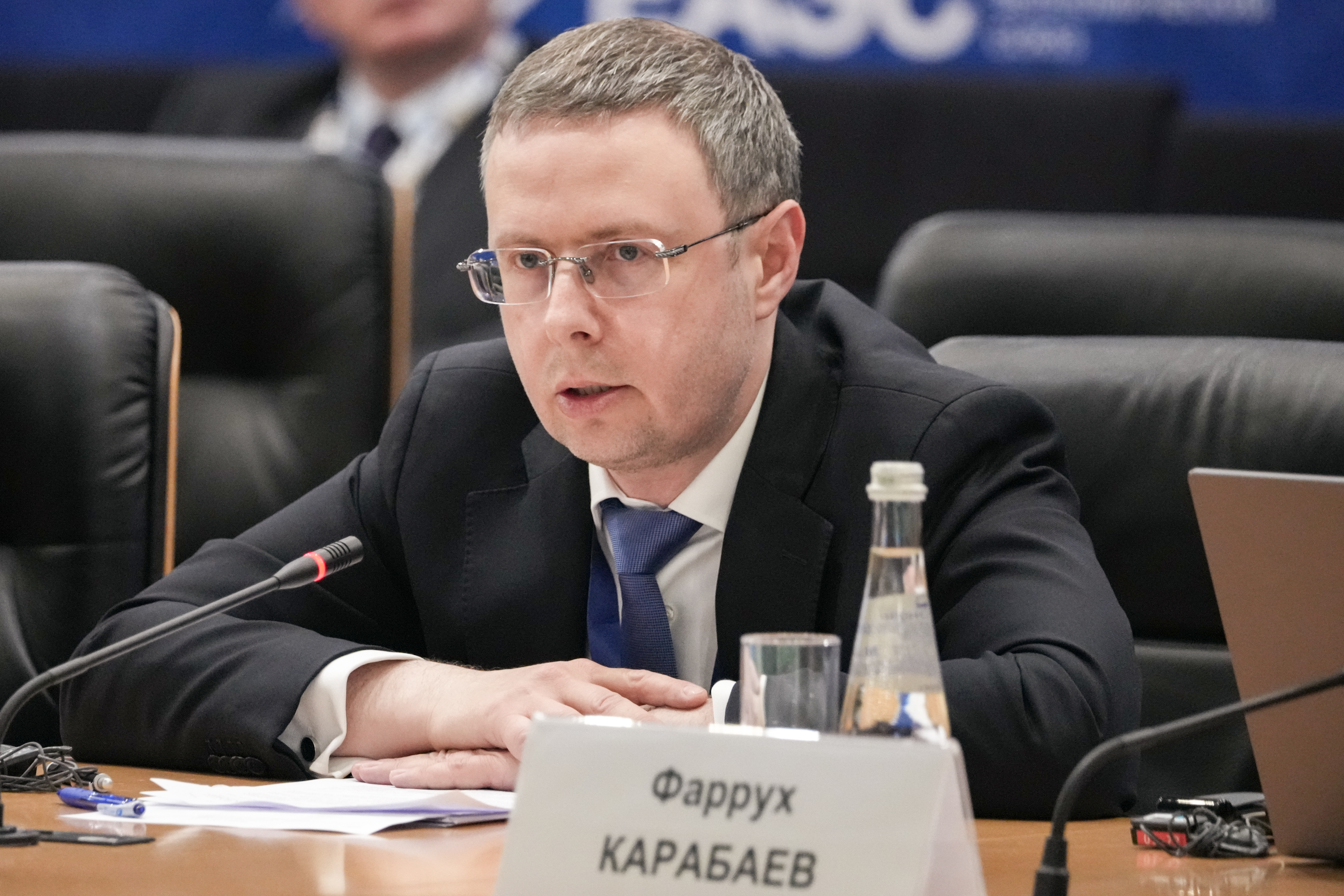
The importance of the work done by the Eurasian Economic Commission (EEC) to create a legal framework for the EAEU was emphasized by Erna Hayriyan, Chairman, Court of the Eurasian Economic Union. And Ulugbek Kalenderov, Deputy Minister of Finance of the Kyrgyz Republic, spoke about the digitalization of the public procurement system in Kyrgyzstan.
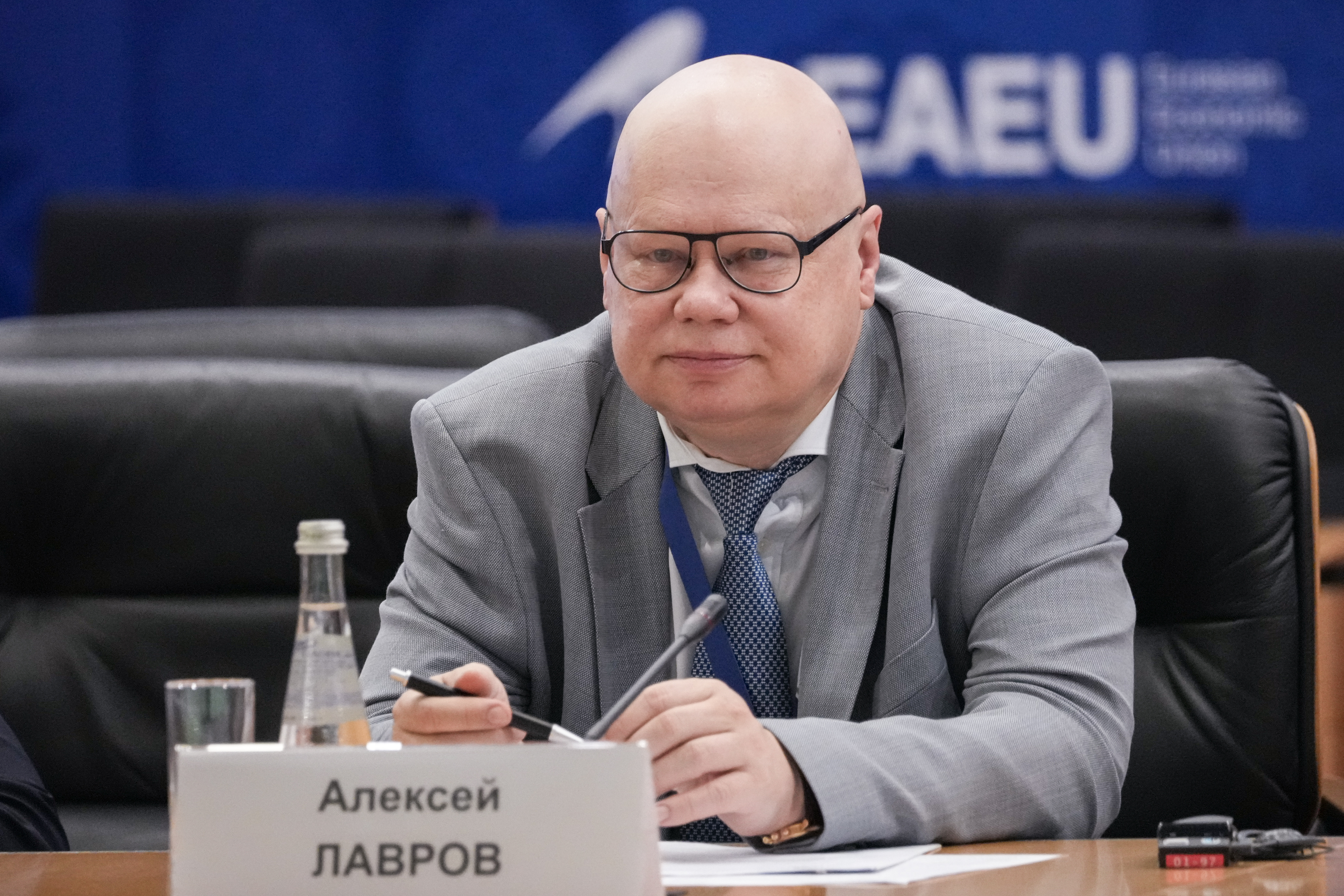
In the context of digitalization, Alexey Lavrov, Deputy Finance Minister of the Russian Federation, mentioned the need to ensure unimpeded access of potential EAEU suppliers to participate in procurement. One of the challenges for the EAEU in this area was the introduction of electronic digital signature.
"The lack of mutual recognition of electronic digital signature by EAEU countries in public procurement is one of the key obstacles to mutual trade. This problem should be solved as soon as possible, and after that all the benefits of digitalization will be revealed."
In a video message, Teresa Moreira, Head of the Competition and Consumer Policies Branch, United Nations Conference on Trade and Development (UNCTAD), noted that different regulatory approaches are practiced around the world, but most often ex-ante and ex-post models complement each other in combination with soft law elements. It is necessary to work together to develop new effective legislation. For example, new antitrust rules have already been adopted in the EU, Japan, China, and Russia is preparing to adopt the Fifth Antimonopoly Package, she emphasized.

The reserves for effective antimonopoly regulation lie in the application of the ex-post model with the use of soft law opportunities, is convinced Alexey Sushkevich, Director of the Department for Antitrust Regulation, Eurasian Economic Commission.
"Since the digital economy is a new phenomenon, and relations between participants in this sector are largely not fully understood even by them, it should be possible to remedy the situation without punishment and sanctions,"
he noted.
In turn, ex-ante regulation can be applied in the form of special requirements to the procedure of data collection and processing. This is relevant also because it is the largest participants in the digital economy that collect and process data about themselves.
"It is only possible to understand something about the digital economy with the help of the largest participants in this market, and any antitrust authority faces this problem. Aberration, curvature of the data we receive is caused precisely because it is provided by the one who is interested in our decision to protect competition,"
emphasized the speaker.
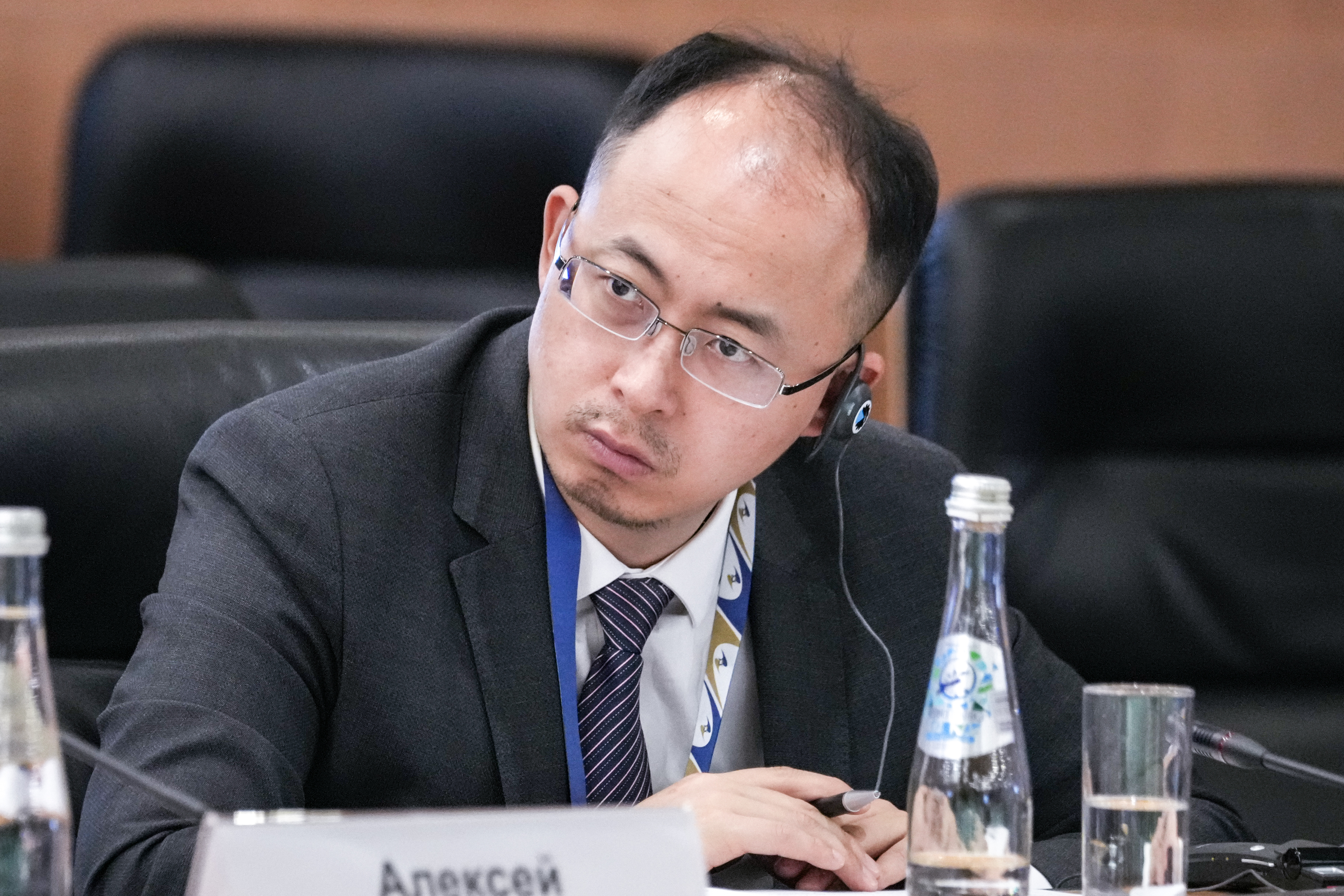
The topic was continued by Jia Kai, Associate Professor at the School for Public Policy and Administration at the University of Electronic Science and Technology of China (UESTC), who spoke about the regulation of digital platform algorithms in China. By May this year, more than 100+ companies have already submitted and published 262 different algorithms in the public domain. According to the Regulation on the Regulation of Algorithmic Recommendations in the Provision of Internet Information Services, regulators request from operators the name of the algorithm, its type (recommendation, search, ranking, etc.), the area of application, a description of the mechanisms of operation and other data.
"We believe that it is necessary to fight for the transparency of algorithms. The question is which of these data about algorithms should be provided to regulators and which should be open to the public,"
Jia Kai emphasized.
Farrukh Karabaev, Deputy Chairman, Competition Promotion and Сonsumer Protection Committee of the Republic of Uzbekistan, spoke about how, in accordance with the Digital Uzbekistan 2030 strategy, the legislative framework for the regulation of digital platforms in Uzbekistan is being finalized.
"We are in favor of ex-ante regulation. Based on the EU experience, we propose to introduce the following criteria for dominance of digital companies: annual turnover of $3m and the presence of 50,000 end users per month on the platform."
After reviewing Brazil's experience in introducing special Cérebro software to identify digital cartels and bid rigging, the Uzbek regulator began using the Fair Tech information system, including for monitoring public procurement and analyzing the state of competition in commodity, financial and digital markets.
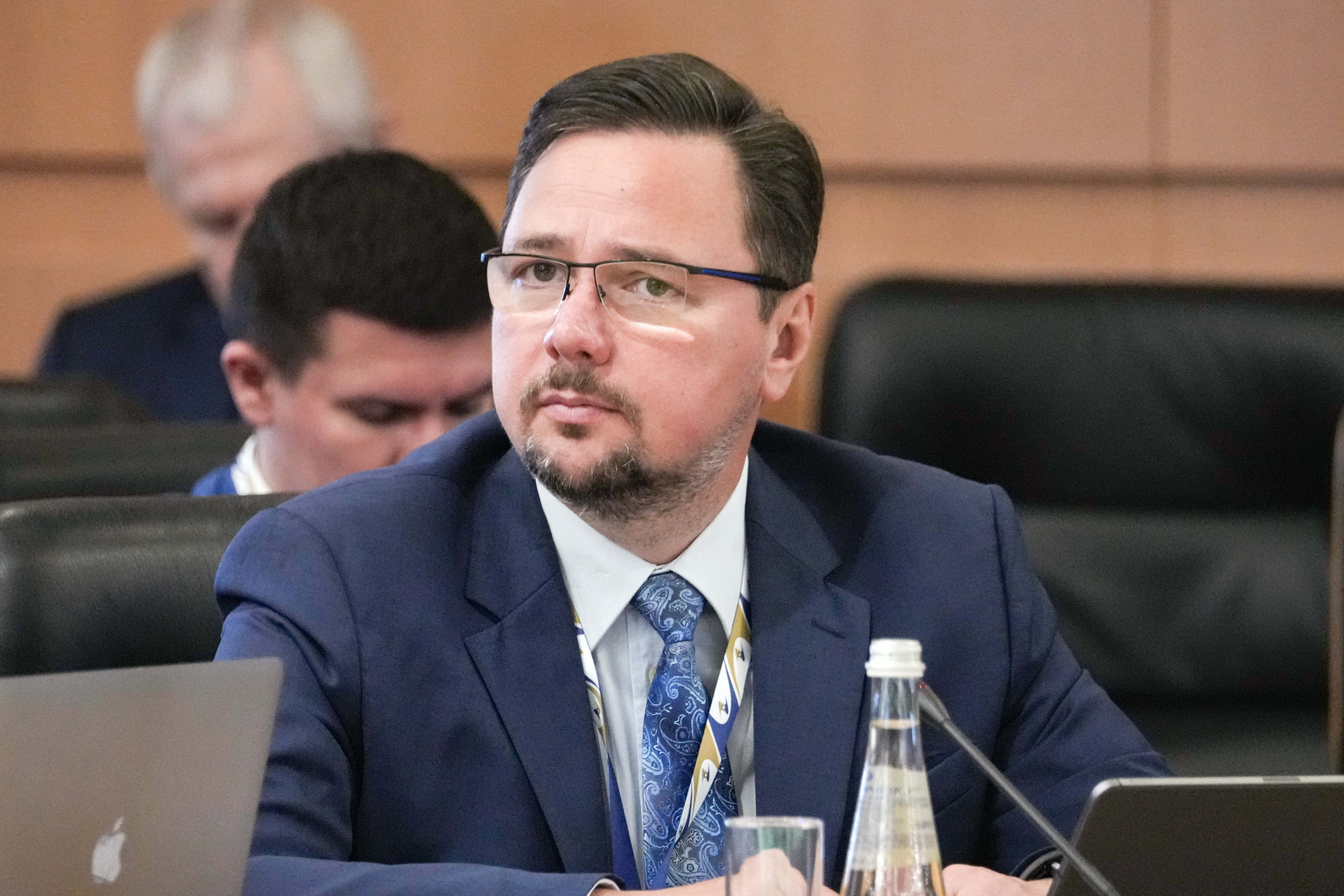
Denis Kolos, Judge, Court of the Eurasian Economic Union, presented several notable cases from practice, including those related to the issue of digitalization, and noted their significance for national and union legal regulation:
"The advisory opinions of the Court, although of a recommendatory nature, are taken into account by both the EEC and the member states of the Union, contribute to the uniform application of EAEU law and create legal certainty for economic entities."
Elena Zaeva, Head of Communications and Information Technology Regulation Department, FAS Russia, supported the FAS tactic of applying soft law tools in digital regulation.
"There are nuances in the functioning of platforms - it is, first of all, their multilateral nature. They have many categories of consumers with different needs and capabilities. In these circumstances, introducing ex-ante regulation should be done with extreme caution and only when soft law has not worked."
Shushan Sargsyan, Member of the Commission for Protection of Competition of the Republic of Armenia, pointed to the role of digital markets in the transformation of the economy and their importance for future global development.
"Government intervention, both ex-ante and ex-post, in digital markets should be strictly targeted and proportional, so as not to limit innovation and to promote self-regulation of markets,"
she summarized.

The need to prevent the emergence of digital monopolies and the role of access to big data in their emergence was highlighted by Mary Gurure, Manager for Legal Services and Compliance of the Competition Commission, Competition Commission of the Common Market for Eastern and Southern Africa (COMESA), which represents 21 countries, is working on amending its Competition Act and has taken into account many of the issues discussed during the session, Ms. Gurure stressed.
For Russian digital companies, the Principles of Interaction of Digital Market Participants, which they signed on the initiative of the FAS, are important, said Mukhamed Khamukov, Deputy Head of Government Relations, Ozon.
"We see the strength to work in the self-regulation mode. Maxim A. Shaskolsky today announced the development of such model principles within the CIS, and this inspires confidence."
Concluding the meeting, Bakhyt Sultanov noted that regulators will continue to use all models - ex-ante and ex-post regulation, as well as elements of soft law. The question of which of these is better remains open, and this is an occasion to continue discussions, fruitful interaction and exchange of experience.
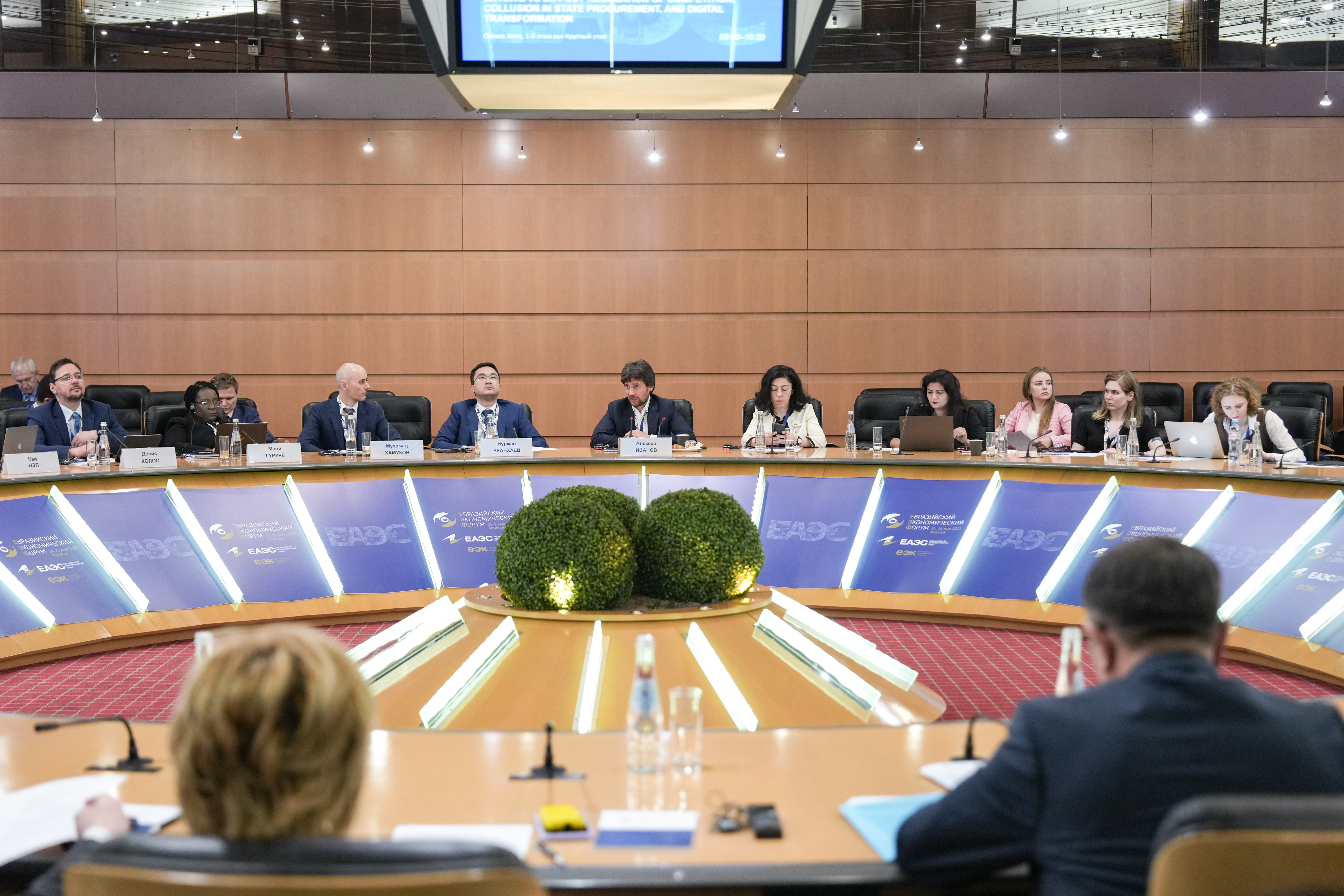
The session was also attended by Nurzhan Urankhaev, Head of Department of the Agency for Protection and Development of Competition of the Republic of Kazakhstan in the Almaty City, and Tadzio Schilling, Chief Executive Officer, Association of European Businesses (АЕВ).
The second Eurasian Economic Forum was held on 24–25 May in Moscow and was timed to coincide with a meeting of the Supreme Eurasian Economic Council with the participation of heads of member and observer states of the Eurasian Economic Union. The events were held as part of the Russian Federation’s presidency of the Eurasian Economic Union bodies in 2023. The theme of the Forum was ‘Eurasian Integration in a Multipolar World’.
Photo сredit: roscongress.org
